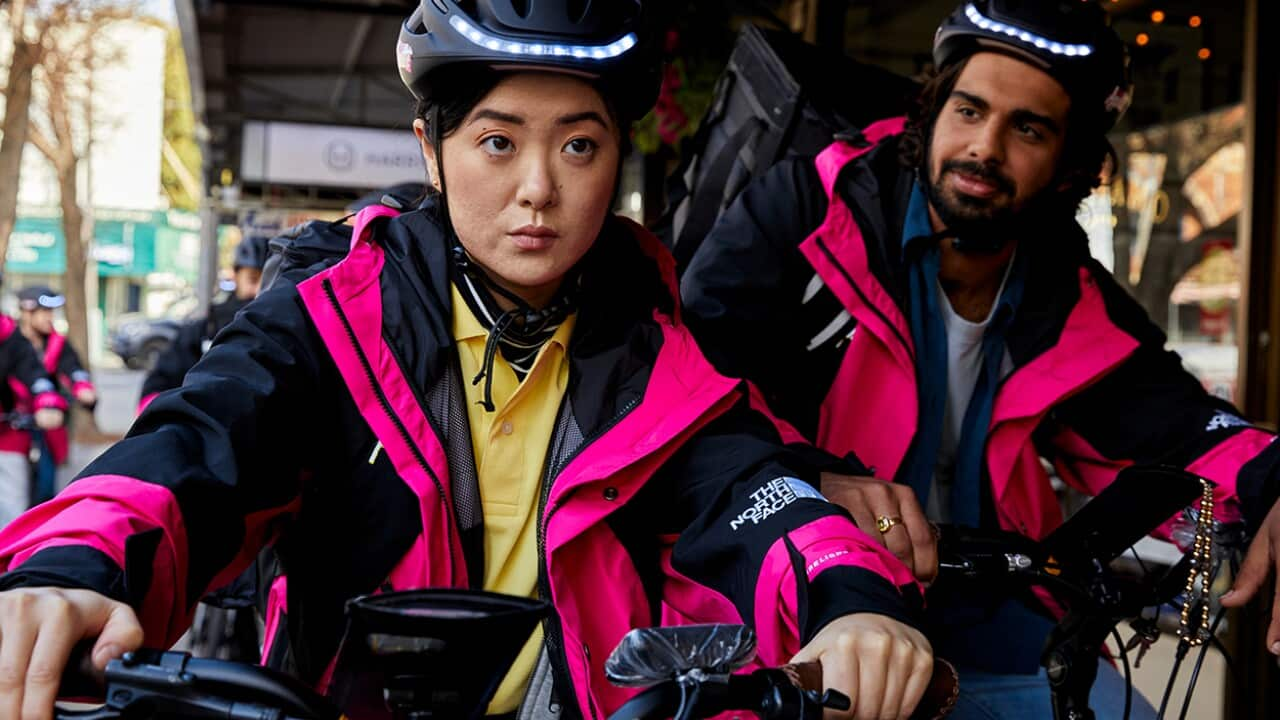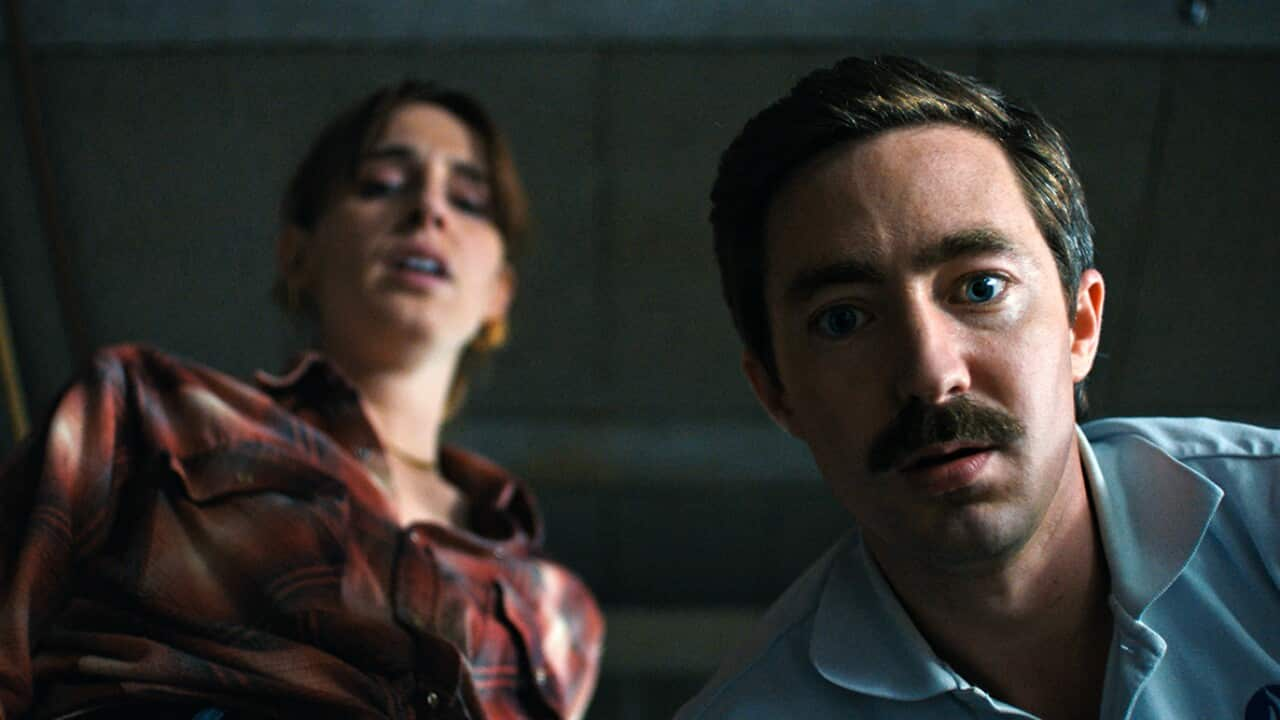When Japanese television drama Mother premiered in 2010, it told a universal story that transcended language and culture. So much so that tale was later revisited in Turkish series Anne, depicting the consequences of child abandonment and the subsequent search for belonging for a whole new audience. Now, 13-part Spanish language adaptation Heridas brings a new interpretation of this emotive story to life, this time through the eyes of biologist and photographer Manuela.
Having left the home where she lived with her adoptive family to study the migratory birdlife of the Andalusian wetlands, 28-year-old Manuela (Adriana Ugarte) has been running from the trauma of her past for as long as she can remember. The wounds of her childhood are still raw, and much like the birds she studies, Manuela does not allow herself to remain in one place for too long; in her experience, attachment only leads to heartbreak. Determined to avoid further suffering, Manuela keeps those around her at arm’s length and is particularly resolute about one thing: she will never be a mother. The wall Manuela has built around herself begins to crumble, however, thanks to a chance meeting with precocious seven-year-old Alba (Cosette Silguero). There’s an immediate connection between the pair, one that takes Manuela by surprise, not least due to the fact that she immediately recognises herself in the little girl. Then, there are the all too familiar signs of neglect, physical and emotional scars that she and Alba both share. Alba is a breath of fresh air, and holds a mirror up to Manuela in a way no one else has been able to, asking questions and offering insight far beyond her years. This confidence serves as a mask, however, for the suffering that she, like Manuela, must hide.
The wall Manuela has built around herself begins to crumble, however, thanks to a chance meeting with precocious seven-year-old Alba (Cosette Silguero). There’s an immediate connection between the pair, one that takes Manuela by surprise, not least due to the fact that she immediately recognises herself in the little girl. Then, there are the all too familiar signs of neglect, physical and emotional scars that she and Alba both share. Alba is a breath of fresh air, and holds a mirror up to Manuela in a way no one else has been able to, asking questions and offering insight far beyond her years. This confidence serves as a mask, however, for the suffering that she, like Manuela, must hide. It doesn’t take long before Manuela realises that Alba needs her protection, in the same way she needed protecting all those years ago, and she’s not the only one who fears for the child’s safety. Local teacher Rocio (Elisabet Gelabert) has noticed that Alba’s mother Yolanda (María León) has little interest in her daughter’s wellbeing, having never visited the school or provided so much as a packed lunch since the year began. Yolanda’s partner Lucho (Javier Collado) is another cause for concern, a sinister figure who is far from the sort of man that anyone would want around their child.
It doesn’t take long before Manuela realises that Alba needs her protection, in the same way she needed protecting all those years ago, and she’s not the only one who fears for the child’s safety. Local teacher Rocio (Elisabet Gelabert) has noticed that Alba’s mother Yolanda (María León) has little interest in her daughter’s wellbeing, having never visited the school or provided so much as a packed lunch since the year began. Yolanda’s partner Lucho (Javier Collado) is another cause for concern, a sinister figure who is far from the sort of man that anyone would want around their child.

Manuela's own family relationships have issues, too. Source: Atresmedia

Manuela (Adriana Ugarte) with Alba (Cosette Silguero). Source: Atresmedia
Though she treats Alba with disdain, and deflects responsibility for her wherever possible, it has to be said that this is a situation not entirely of Yolanda’s making. She is a woman in the most desperate of circumstances from which she can see no way out, even for the sake of her daughter. As is so often the case in relationships that are toxic and abusive, Yolanda feels the prospect of a better future getting further from her grasp and the added responsibility for Alba’s welfare is a burden that is too much to bear. But despite it all, Yolanda isn’t about to give up the title of mother without a fight. When confronted about her treatment of Alba, she tells Manuela to back off in no uncertain terms. Yolanda also wastes no time reminding Manuela that she can’t possibly know what’s best for Alba or any other child: she’s not a parent. It’s a cruel blow that hurts all the more because there’s truth behind it, but if there’s one thing this story affirms, it’s that biology is just one qualification for being a mum. From the moment Manuela heard Alba’s appeal to be loved, and answered it, she has, whether she knows it or not, taken on that role.
When confronted about her treatment of Alba, she tells Manuela to back off in no uncertain terms. Yolanda also wastes no time reminding Manuela that she can’t possibly know what’s best for Alba or any other child: she’s not a parent. It’s a cruel blow that hurts all the more because there’s truth behind it, but if there’s one thing this story affirms, it’s that biology is just one qualification for being a mum. From the moment Manuela heard Alba’s appeal to be loved, and answered it, she has, whether she knows it or not, taken on that role.

Alba (Cosette Silguero) with her mother Yolanda (María León). Source: Atresmedia
Gradually, Manuela discovers that it is a role founded on sacrifice and saving Alba will see her forced to revisit her own demons and make sense of her place in the world. Love is the driving force behind each of Heridas’ 13 emotional episodes, but this story of the bond between a woman and a child is about much more than just that. It is about the quest for acceptance, the importance of identity, and a reminder that even the deepest of wounds can heal.






